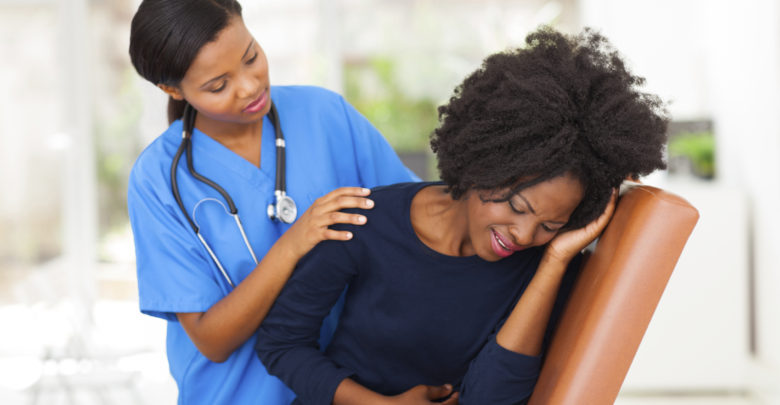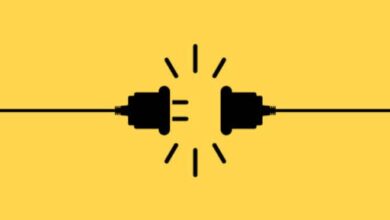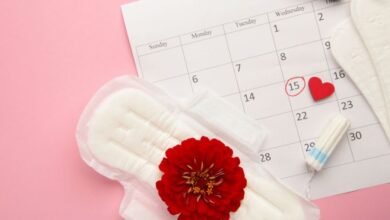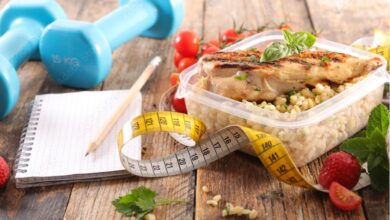Ways To Treat Terrible Period Cramps

Severe period pains should always be investigated to check for a treatable cause. As a rough guide, if your fiance has had severe period pain (known as dysmenorrhoea) since around the time her periods first started, it’s less likely a particular cause will be found.
There are exceptions to this. Conditions such as endometriosis can sometimes cause severe pain from an early age (although the pain typically gets worse as the disease does more damage with each monthly cycle). Other causes include fibroids, pelvic inflammatory disease and sometimes a narrowing of the cervix. Bear in mind, though, that period pains are rarely a sign of disease, especially in younger women.
If the pain interferes with her life, preventing her from working, going to school or coping with daily tasks, I would recommend that she consults with a doctor/gynaecologist for further evaluation.
Home Treatment
Try the following home treatment to help relieve your menstrual cramps:
* Use heat, such as hot water bottles, heating pads, or hot baths, to relax tense muscles and relieve cramping. Be careful not to burn yourself.
* Drink herbal teas, such as chamomile, mint, raspberry, and blackberry, which may help soothe tense muscles and anxious moods.
* Exercise. Regular workouts decrease the severity of cramps. For more information, see the topic Fitness.
* Empty your bladder as soon as you have the urge to urinate.
SELF TREATMENT FOR MENSTRUAL CRAMPS
Medications
The main treatment for menstrual cramps are a class of drugs called Non-steroidal anti-inflammatory drugs or NSAIDs for short. These are drugs every woman knows: ibuprofen (Motrin) or Naproxen (Aleve). They work by stopping the body from making prostagladins. They also work by preventing blood clotting.
They are not aspirin-related. So allergies or reactions to aspirin don’t matter. They are safe for girls too. In spite of their pain-relieving properties, they are not narcotic. So, there is absolutely no reason to avoid them for women who don’t want to be drowsy or have their thinking ability affected. They are not addicting either.
NSAIDs should be avoided if there are any kind of bleeding problems including stomach ulcers. They are a bit irritating to any woman’s stomach, and should be taken with food. NSAIDs should be avoided if a woman suspects pregnancy.
How to Take Them
Prostagladins are produced but quickly degraded in the body, in about a half hour. So, if a woman gets the NSAIDS on board before the cramps get going, she can short-circuit the whole process. If a woman is regular (if she knows approximately when, not the exact day), she can take the pill of her choice a few days before she starts. She can also gauge the start based on PMS symptoms or the first twinges of cramps. After the start is OK too.
There are scores of different medications and brands to choose from. Different formulations work well on different women. This is becauese prostagladin production is a whole series of events. Different drugs in the NSAID category work on different stages of this process. There are individual differences as to which level of intervention works best. There is no way to predict which drug will work best on a particular woman.
She should simply try one and then a different one, if it doesn’t work. Check the back of the bottle for the generic chemical name to make sure the medication is not another brand name for the same drug. She should ask the pharmacist for help to find an NSAID that is subtantially different than the last one she tried.
Generic ibuprofen is a good place to start, as it is the cheapest. Enteric coated are a better starting place for those with weak stomaches. Long-acting or once-a-days may be the first choice for teens whose schools restrict bringing pills to schoo or women who get infrequent breaks during the day. Also, remember to take one of the ones that lasts at least 12 hours when using them overnight. This is important as cramps are more likely when the period starts overnight and the blood pools and clots while lying down.
Other Self-Treaments
Exercise in general has also been shown to help alleviate dysmennorhea. It is not known to help the severe cramping (like those women could get up a jog anyway). A number of herbal, natural, and alternative medicine treatments claim to help. None has substantial scientific evidence, yet.
WHEN SELF TREATMENT IS NOT ENOUGH
If none of the over-the-counter types work, there are also a number of prescription NSAIDs available. The longer acting ones tend to be prescription only. This means the woman will need to visit the doctor. This can be a good time to make sure the cramps are primary and not secondary.
If prescription NSAIDs don’t work, birth control pills can lessen the menstrual flow and solve the problems of dysmenorrhea for many women. In resistent cases narcotic pain relievers can also be used.





Hi, this is a comment.
To get started with moderating, editing, and deleting comments, please visit the Comments screen in the dashboard.